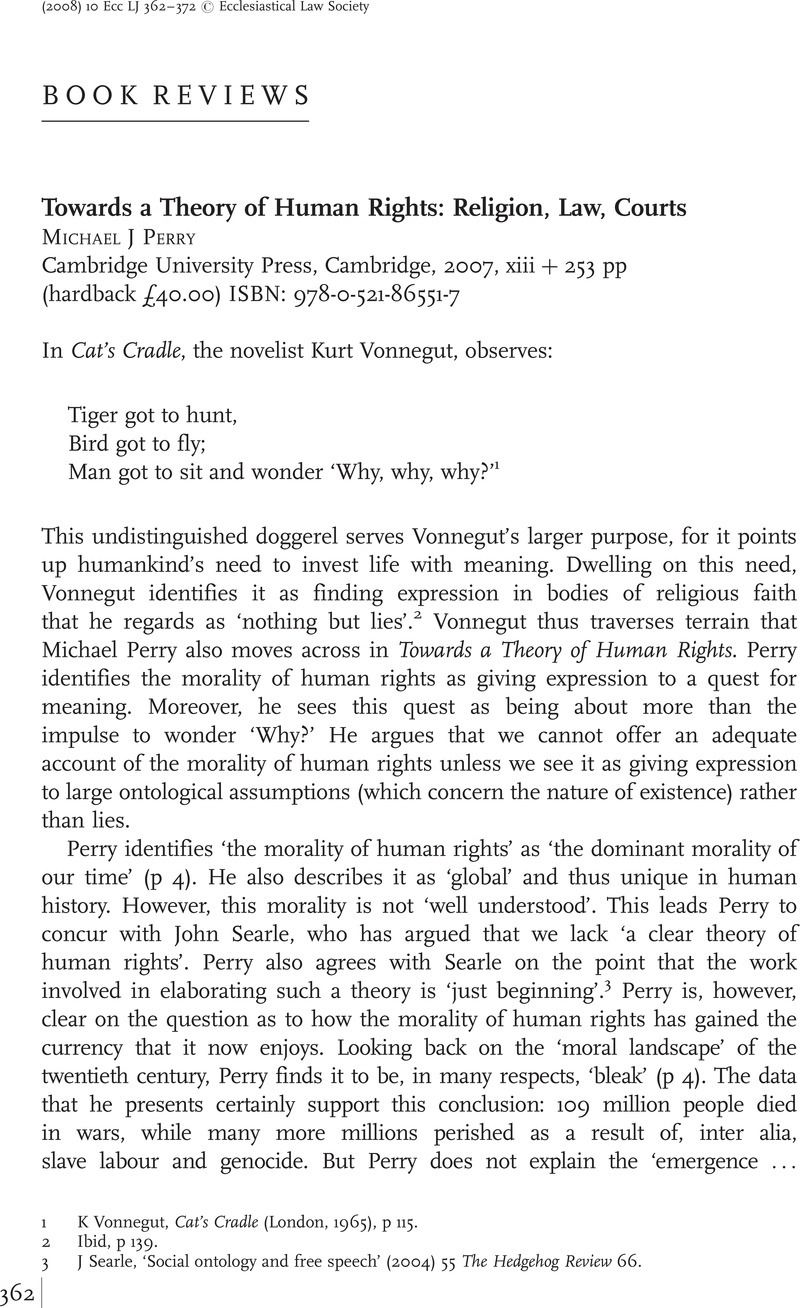No CrossRef data available.
Article contents
Towards a Theory of Human Rights: Religion, Law, CourtsMichael J Perry Cambridge University Press, Cambridge, 2007, xiii + 253 pp (hardback £40.00) ISBN: 978-0-521-86551-7
Published online by Cambridge University Press: 12 August 2008
Abstract

- Type
- Book Reviews
- Information
- Copyright
- Copyright © Ecclesiastical Law Society 2008
References
1 K Vonnegut, Cat's Cradle (London, 1965), p 115.
2 Ibid, p 139.
3 J Searle, ‘Social ontology and free speech’ (2004) 55 The Hedgehog Review 66.
4 Perry quotes (p 24) from MC Nussbaum, ‘Compassion: the basic social emotion’, (1996) 13 Social Philosophy and Policy 27.
5 P Foot, Natural Goodness (Oxford, 2001), p 103.
6 Ibid.
7 Perry quotes (p 40) from EC Brugger, Capital Punishment and Roman Catholic Moral Tradition (Notre Dame, IN, 2003) p 26, emphasis in original.
8 Vonnegut, Cat's Cradle, p 177.
9 Vonnegut's assessment of humankind bears similarities to that in a novel that he greatly admired. See F Dostoevsky, The Brothers Karamazov (London, 1992), pp 292–294, where the dying Elder Zosima notes that, while people ‘thirst’ for meaning (in the form of ‘the word of God’), they are apt to be ‘scoffers and blasphemers’. See also K Vonnegut, Slaughterhouse Five or The Children's Crusade: a duty to dance with death (London, 1970), p 73, where Eliot Rosewater observes that ‘everything there is to know about life is in The Brothers Karamazov … [b]ut that isn't enough any more’ (emphasis in original).




